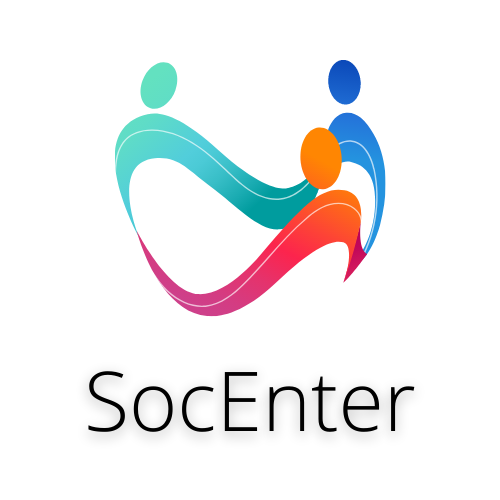We present promotional activities for the SOCENTER project
Promotion of the SocEnter project through participation in the EPALE competition “Way to Erasmus+”!
We invite you to read our entry in which we share practical tips on effective cooperation in Erasmus+ projects, based on the example of the “SocEnter” project. Our article “Effective cooperation in the Erasmus+ project on the example of SocEnter” focuses on key elements of cooperation such as:
1. Selection of partners: In the SocEnter project, we cooperated with foundations from Portugal, Greece and Italy. Each partner brought unique competences, which enriched our joint activities.
2. Regular meetings: Online meetings at least once a month allowed us to exchange information and solve problems on an ongoing basis. We also organized trips to exchange good practices.
3. Knowledge exchange: We have created a script called “Guide for people who want to set up a social cooperative”, training on the MOODLE platform, as well as instructional videos and webinars, available in five languages.

https://epale.ec.europa.eu/pl/blog/efektywna-wspolpraca-w-projekcie-erasmus-na-przykladzie-socenter
Multiplier Events
The SocEnter project was promoted and disseminated in many various ways, ensuring the proper process of sharing its results and expanding its impact. The most formal events in this promotional journey were the Multipliers Events organised in three of the partnering countries: Poland, Italy and Greece.
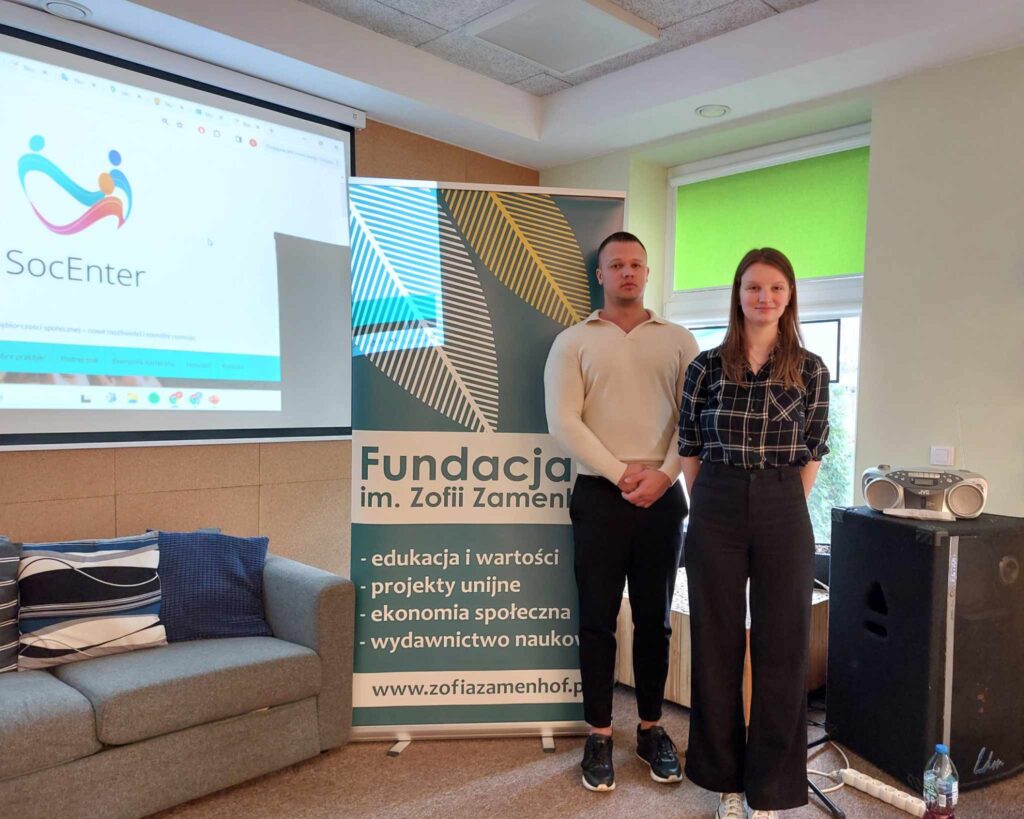
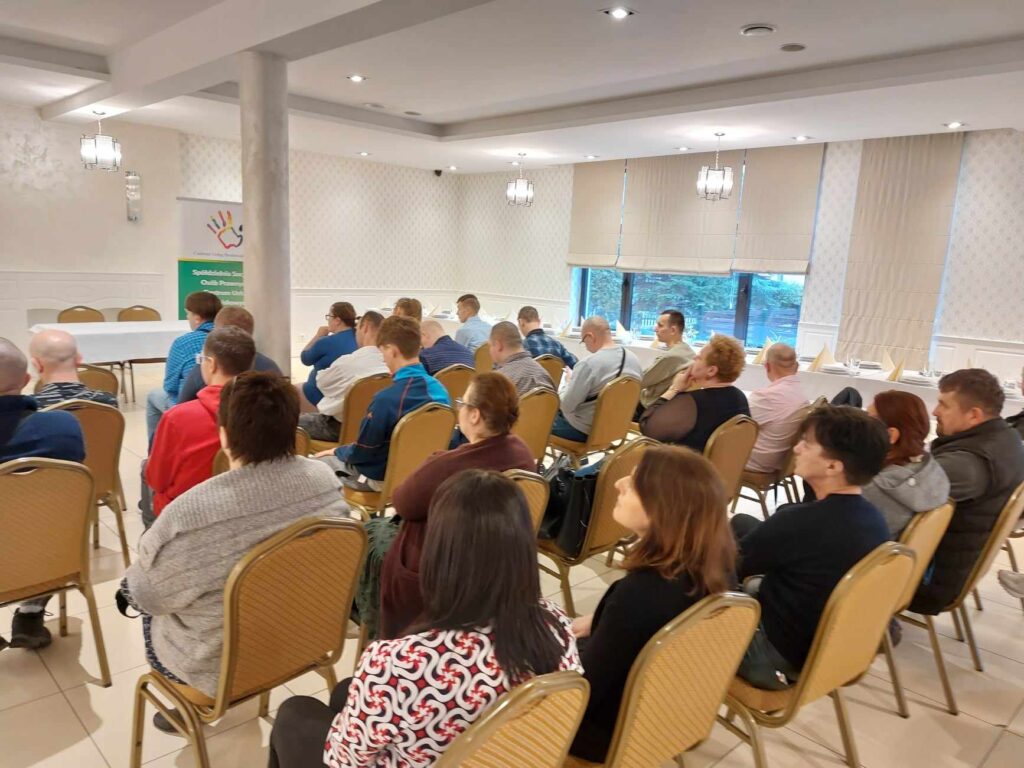
The photos above show the two presenters from the Zofia Zamenhof Foundation, who were also coordinating the project on the leader’s side. It also shows the audience at one of the events where we discussed the results of the project with the beneficiaries at a social cooperative in Drobin.
The second set of photos is from the Greek Multiplier Event that was organised in two parts to ensure that everyone interested could participate. We always make sure to make our initiatives inclusive and coordinate them in close contact with the beneficiaries.
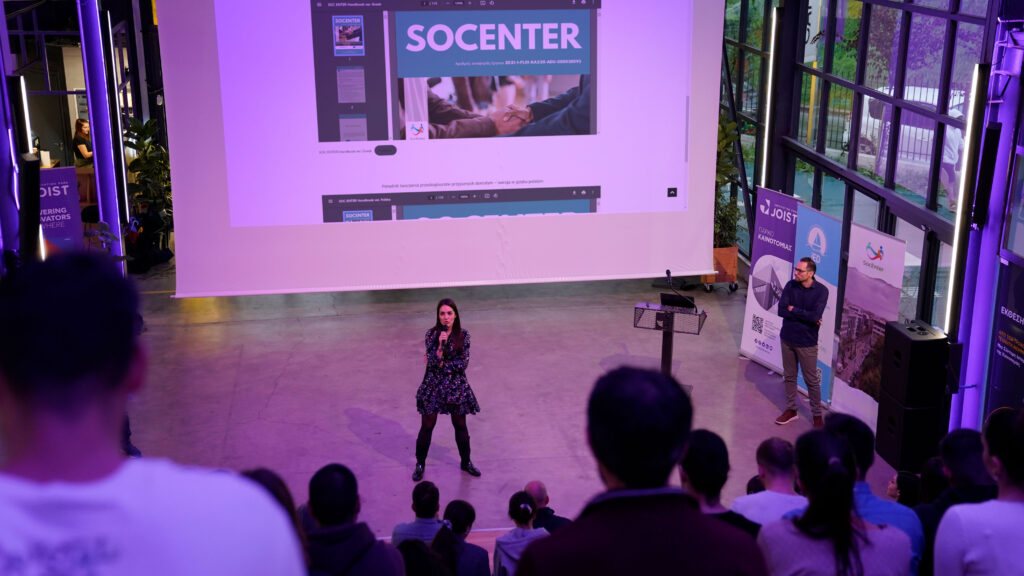
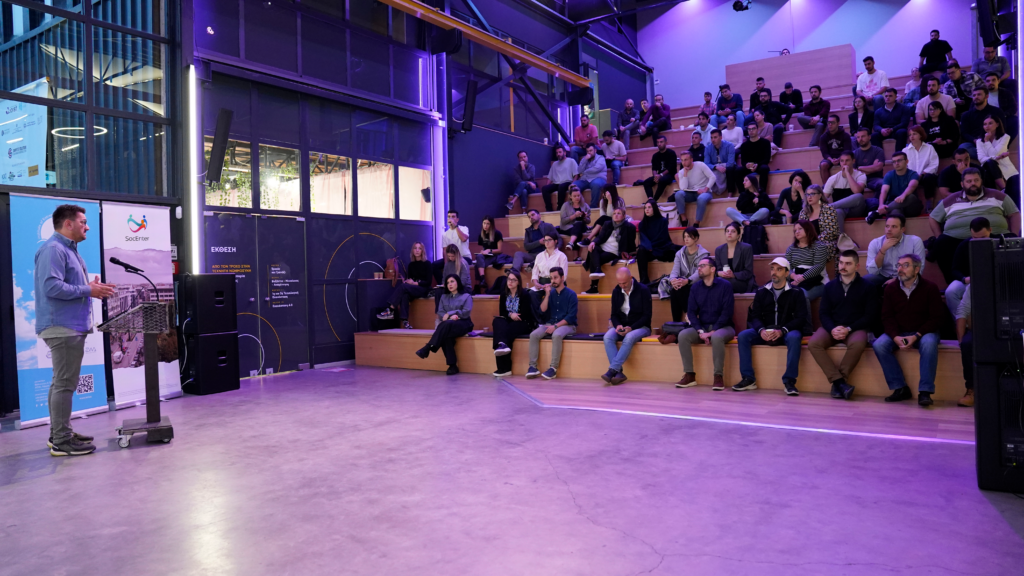
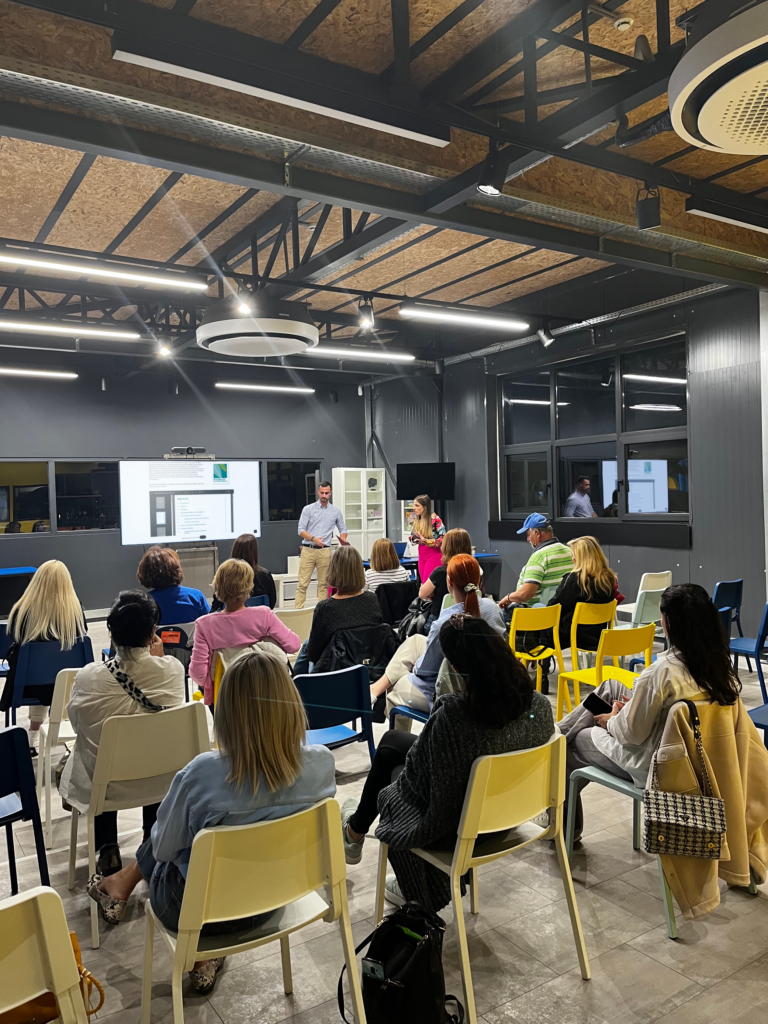
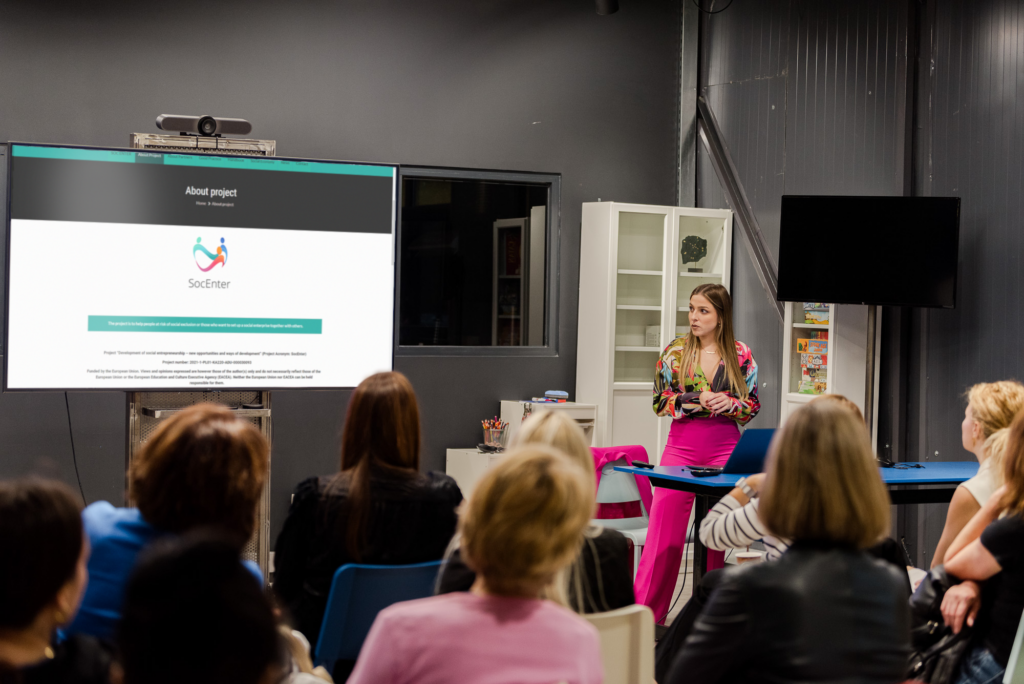
Additional dissemination event in Poland
Before we entered the final stage of the project dissemination, we found it important to start sharing the possibilities that the SocEnter project offered with our audience. That is why we organised an additional dissemination event in Poland, at a social cooperative supporting and run by people with disabilities. As the main core of social entrepreneurship, we believe in reaching out to communities and ensuring that they are seen and heard. The feedback we received from this meeting allowed us to make sure that our actions and initiatives within the project were on track with actual needs of our beneficiaries.
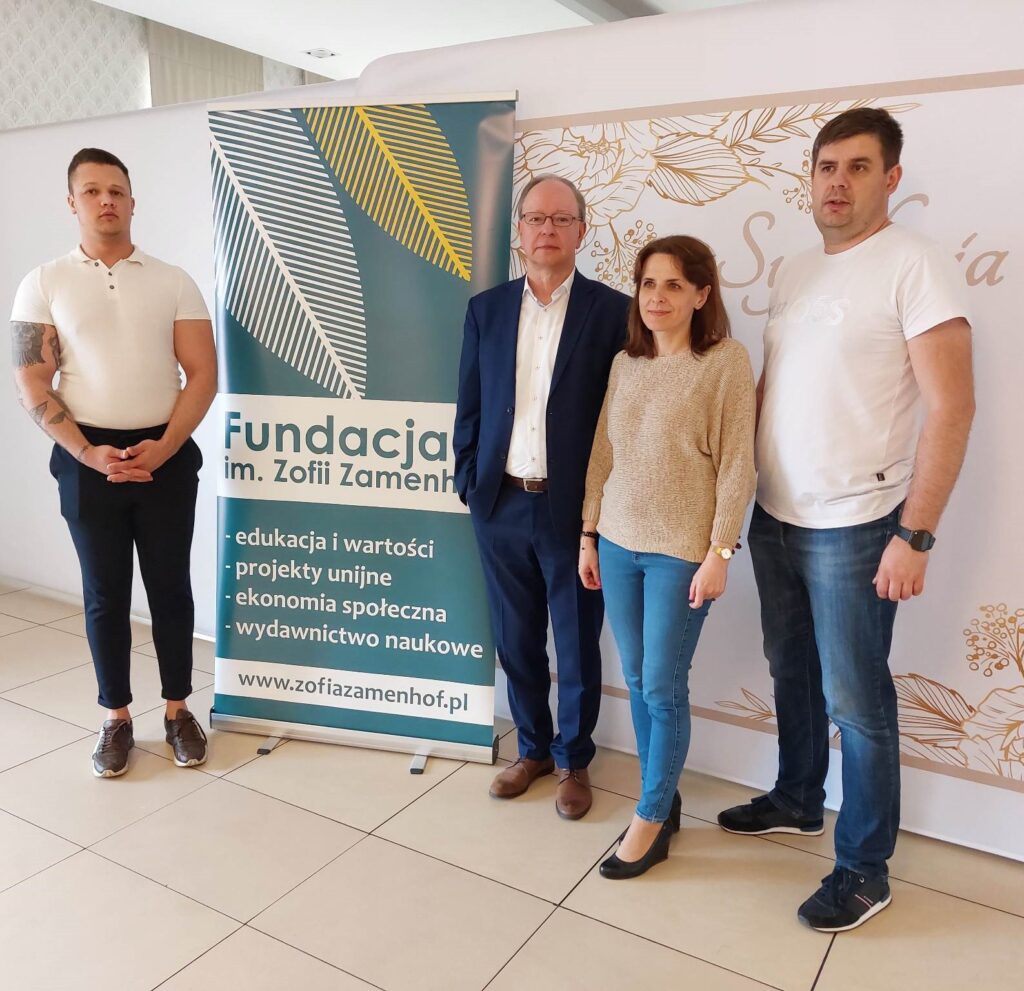
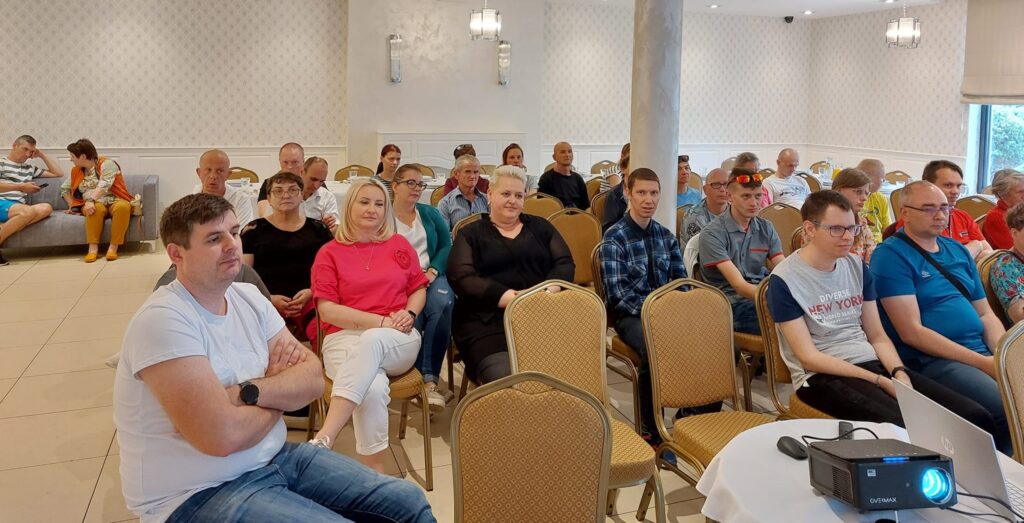
Links to our social platforms
We regularly share news about our project and initiatives related to social entrepreneurship on our profiles in social media – both created for this project and main ones for our organisations:
Promotion of the project among disadvantaged groups
The SocEnter project plays a crucial role in helping disadvantaged individuals develop social entrepreneurship skills by providing comprehensive and accessible educational resources tailored to their needs. Through various initiatives and tools, the project fosters an inclusive learning environment that equips participants with the necessary knowledge and skills to succeed in social entrepreneurship.
1. Accessible learning platforms
The user-friendly e-learning platform developed by the SocEnter project offers flexible learning opportunities, enabling disadvantaged individuals to engage with the material at their own pace and according to their schedules. This flexibility is essential for those who may have other commitments or face barriers to traditional education.
2. Blended learning approach
By combining online resources with face-to-face sessions, the SocEnter project accommodates different learning preferences. This approach ensures that participants can benefit from the convenience of digital learning while also gaining the personal interaction and support that in-person sessions provide.
3. Practical training modules
The integrated training modules and resources developed through the project are designed to impart practical knowledge in social entrepreneurship. These modules include interactive videos, quizzes, discussion forums, and real-world case studies, providing a hands-on learning experience that prepares participants for real-world challenges.
4. Handbook on creating adult-friendly enterprises
This valuable resource combines theoretical knowledge with practical exercises, helping participants develop both soft and hard business skills. The handbook offers concrete guidance on starting and scaling social enterprises, making it especially useful for disadvantaged individuals who may need structured support and direction.
5. Collaboration with diverse stakeholders
The SocEnter project involves a mix of stakeholders from the public, private, and third sectors, creating a supportive community welfare system. This collaborative approach ensures that the training programs are relevant and effective, addressing the specific needs of disadvantaged individuals.
6. Continuous feedback mechanisms
By establishing continuous feedback mechanisms with participants, the SocEnter project allows for iterative refinement of educational materials based on real-time input and experiences. This ensures that the training remains responsive to the needs of disadvantaged individuals, improving their learning outcomes.
7. Focus on values and personal development
The SocEnter project emphasises the development of essential values such as responsibility, integrity, cooperation, and innovation. Instilling these values helps participants build strong ethical foundations, fostering a sense of purpose and commitment to social entrepreneurship.
8. Empowerment and inclusion
By providing disadvantaged individuals with the tools and knowledge needed to establish and manage social enterprises, the SocEnter project empowers them to create positive change in their communities. This empowerment leads to greater social inclusion and enhances their employability and personal growth.
In summary, the SocEnter project helps disadvantaged people develop social entrepreneurship skills by offering accessible, practical, and value-driven education. Through its innovative platforms, comprehensive training modules, and collaborative approach, the project equips participants with the knowledge and confidence to create and sustain successful social enterprises, ultimately contributing to their personal and professional development. As two partners of the project consortium are active social cooperatives, we were able to test and implement those practices and share our findings, as well as best practices with other institutions and stakeholders, creating a network of communication and mutual support with the common goal of helping disadvantaged individuals.
